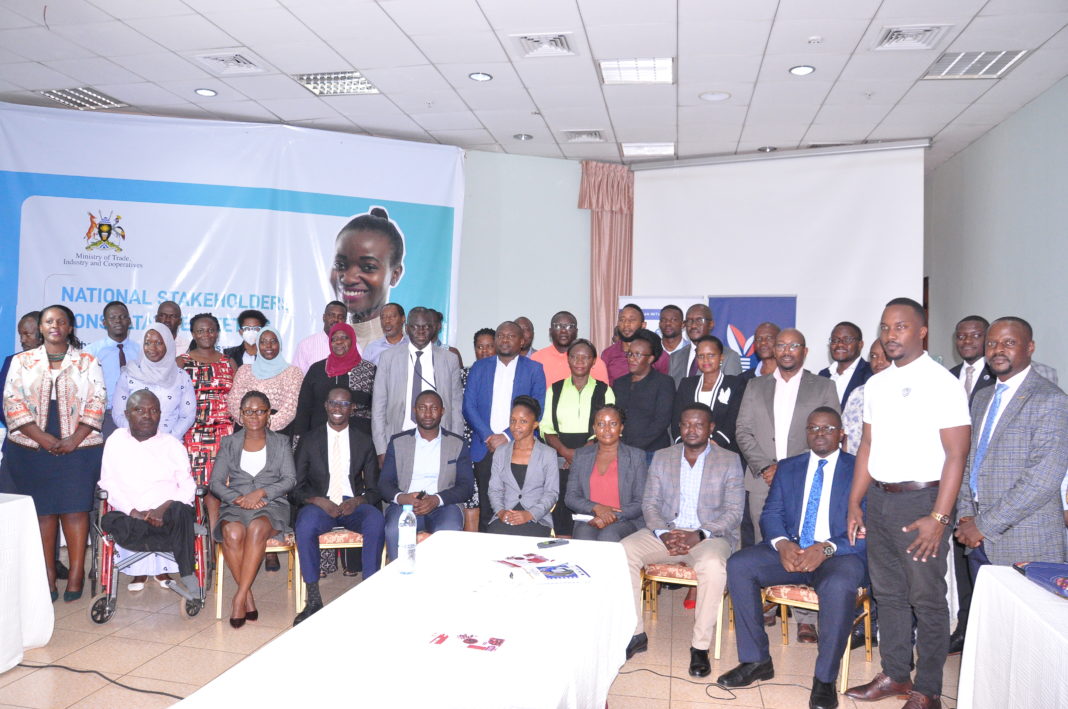Youth MP for Northern Uganda Boniface Okot is set to table a private member’s bill on startups in the country.
This announcement was made during the national stakeholder consultative meeting organized by Private Sector Foundation Uganda, Start-up Uganda, Mastercard Foundation and the Innovation Village at Imperial Royale hotel during the commissioning of the Regulatory Impact Assessment report on the challenges affecting the start-up ecosystem in Uganda.
In his remarks, Okot said, the Start-up Act is one of the progressive legislative interventions and incentives for young people to actively participate in matters of socio-economic transformation. “We have seen countries like Nigeria whose start-up ecosystem have leading entrepreneurship hubs in the continent thanks to a conducive start-up regulatory environment.”
Okot said, “Ugandan entrepreneurial ecosystem consists of young people whose businesses have failed due to lack of capital, stiff competition amidst declining demand, high cost of inputs, Covid-19 disruptions, and heavy taxation. The private member’s bill on startups to be drafted will cater for regulation, tax incentives and relief financing that is required to foster business resilience, increase economic activities and provide for innovative interventions that will promote sustainable growth of start-ups.”
Speaking on behalf of the Permanent Secretary, Zackey Kalega, the commissioner for the Ministry of Trade, Industry and Cooperatives said, the Regulatory Impact Assessment report will provide strategic direction to interventions to unlock the existing social, economic, and regulatory bottlenecks hindering the establishment, growth, and sustained performance of established start-ups in Uganda.
“The RIA report will provide evidence-based guidance on the right course of action to pursue the private member’s bills. Beyond designing interventions, we ensure the implementation of these interventions especially in ensuring that the ecosystem is conducive,” Kalega said, adding that the National Development Plan III aims to strengthen the private sector to create the much-needed employment opportunities for the population and drive social economic transformation.
Eric Ssempambo, Investment Specialist Business Environment at Private Sector Foundation Uganda said, “the deliberations for today’s consultative meeting will greatly contribute towards guiding the technical working team in the right direction and interventions which the RIA could take.
“We appreciate the steps taken by Okot to move a private members bill on Start Ups to parliament. As representatives of the private sector, we remain committed to continuously pursuing the formulation and implementation of the Startup Act and I believe with collaboration, we will jointly make this ecosystem a better place for establishment, innovation, and growth.”
Further noting, Hellen Mukasa, LegalTech Lab Lead at Innovation Village said, the startup Act will be very instrumental in defining what a start-up is, provide the creation and management of a National Start-up Database, provide comprehensive incentives for startups, convene the disintegrated startup ecosystem player, and regulate venture capitalists and investor interactions with startups.
“If enacted, the Startup Act will foster the growth of innovation, attract increased venture capital investment, better global innovation index score, create employment opportunities for the youth and social economic benefits from innovative products and services,” Mukasa said.








